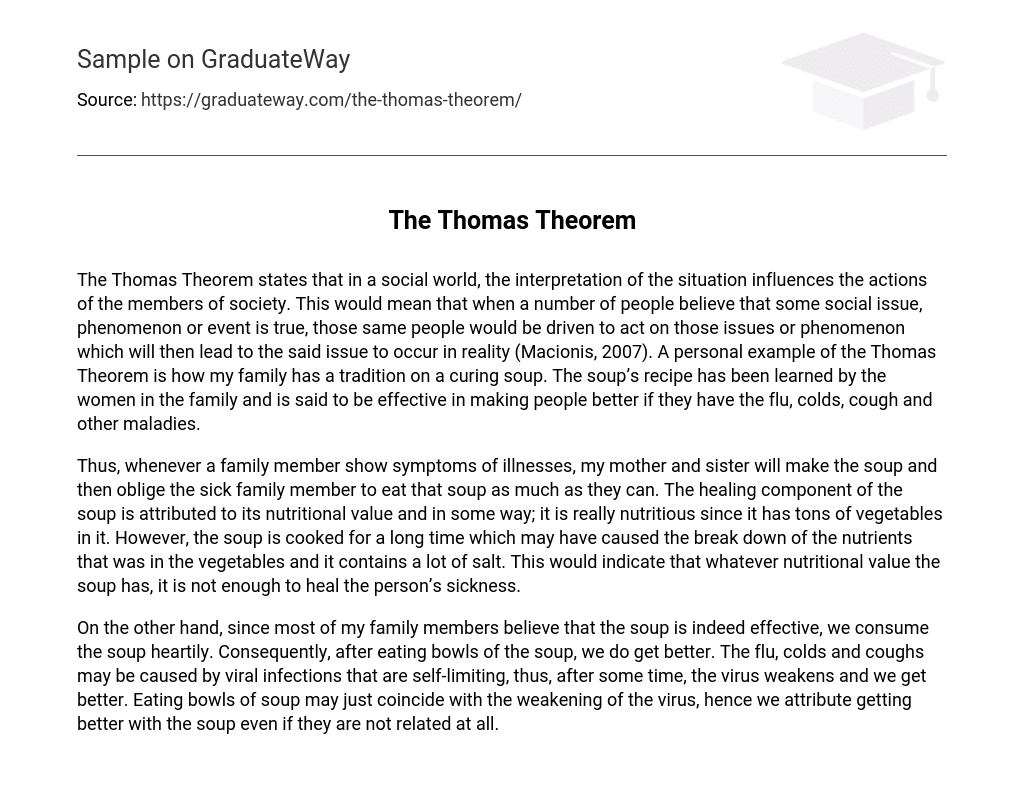The Thomas Theorem states that in a social world, the interpretation of the situation influences the actions of the members of society. This would mean that when a number of people believe that some social issue, phenomenon or event is true, those same people would be driven to act on those issues or phenomenon which will then lead to the said issue to occur in reality (Macionis, 2007). A personal example of the Thomas Theorem is how my family has a tradition on a curing soup. The soup’s recipe has been learned by the women in the family and is said to be effective in making people better if they have the flu, colds, cough and other maladies.
Thus, whenever a family member show symptoms of illnesses, my mother and sister will make the soup and then oblige the sick family member to eat that soup as much as they can. The healing component of the soup is attributed to its nutritional value and in some way; it is really nutritious since it has tons of vegetables in it. However, the soup is cooked for a long time which may have caused the break down of the nutrients that was in the vegetables and it contains a lot of salt. This would indicate that whatever nutritional value the soup has, it is not enough to heal the person’s sickness.
On the other hand, since most of my family members believe that the soup is indeed effective, we consume the soup heartily. Consequently, after eating bowls of the soup, we do get better. The flu, colds and coughs may be caused by viral infections that are self-limiting, thus, after some time, the virus weakens and we get better. Eating bowls of soup may just coincide with the weakening of the virus, hence we attribute getting better with the soup even if they are not related at all.





